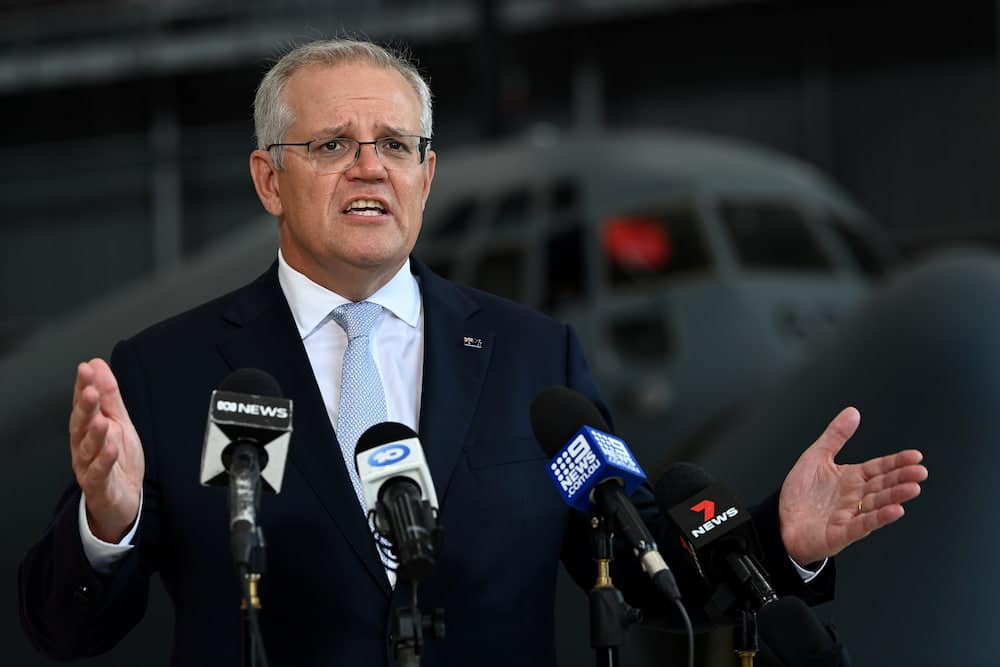Scott Morrison says he empathises with the travel sector seeking to reopen Australia’s international border, but does not yet have the advice he needs to do so.
The Australian Tourism Export Council said on Wednesday maintaining international border closures “was no longer a viable or sensible approach” to contain COVID-19 and was damaging the tourism, hospitality and farming sectors.
The prime minister told reporters in Sydney an initial opening up to backpackers and some visa holders had been successful.
“The key issue that I’ve tasked our health officials to advise me on in opening up the border to international arrivals is what impact that might have on the hospital system and the pressures that could come from additional people coming into the country at this time,” Mr Morrison said.
Mr Morrison said he empathised with industry leaders such as Qantas boss Alan Joyce.
“He knows my very strong commitment to getting to that point as quickly and as safely as we possibly can, so I’m looking forward to making progress on that issue,” the prime minister said.
“I’m optimistic about that, but cautiously optimistic, as you’d expect me to be.”
ATEC managing director Peter Shelley said Australia now had a higher COVID infection rate than the UK or US.
“Given every person arriving in Australia has to be fully vaccinated and tested, there simply is no greater health risk which would result from reopening our international borders – rather it would provide a huge relief to an already burdened and struggling tourism sector,” Mr Shelley said.
“The hermit kingdom approach to protecting our borders is no longer viable and we need urgent clarity from the government on when we can welcome international visitors.”
Meanwhile, the World Health Organization (WHO) recommended easing international travel restrictions last month, stating they fail to prevent the spread of Omicron.
“Lift or ease international traffic bans as they do not provide added value and continue to contribute to the economic and social stress experienced by States Parties. The failure of travel restrictions introduced after the detection and reporting of Omicron variant to limit international spread of Omicron demonstrates the ineffectiveness of such measures over time,” a statement from WHO read.
In a statement published on 5 February 2021, WHO also gave advice against proof of COVID-19 vaccination for international travel which has been largely ignored around the world, including in Australia.
“It is WHO’s position that national authorities and conveyance operators should not introduce requirements of proof of COVID-19 vaccination for international travel as a condition for departure or entry, given that there are still critical unknowns regarding the efficacy of vaccination in reducing transmission,” the statement read.
“In addition, considering that there is limited availability of vaccines, preferential vaccination of travellers could result in inadequate supplies of vaccines for priority populations considered at high risk of severe COVID-19 disease.
“WHO also recommends that people who are vaccinated should not be exempt from complying with other travel risk-reduction measures.”
With AAP
Get all the latest Canberra news, sport, entertainment, lifestyle, competitions and more delivered straight to your inbox with the Canberra Daily Daily Newsletter. Sign up here.



